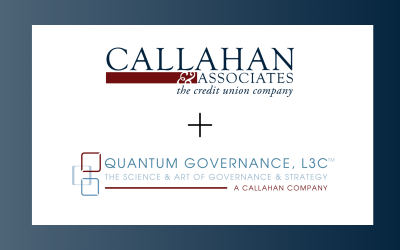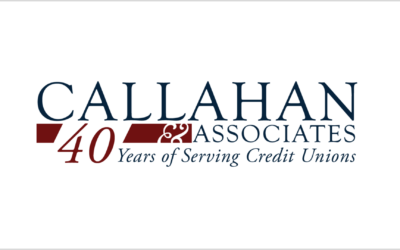Callahan’s Tips For Correctly Reporting To The NCUA
The NCUA’s 1Q22 5300 Call Report contained over 1,000 new, erased, and changed codes, leaving many credit unions in the dark on how to correctly report quarterly.
As credit unions familiarize themselves with the latest version of the call report, we’d like to call out a few codes that are common causes of reporting confusion.
Our data experts at Callahan & Associates contacted the NCUA about these account codes to confirm the correct method of reporting to better help credit unions get acclimated.
Read Below To Better Understand:
- Loans Sold and First Mortgage Loans
- Gain (Loss) On Sales Of Loans And Leases
- Gain (Loss) On Sales Of Other Real Estate Owned
- Subordinated Debt and Subordinated Debt Included In Net Worth
Account Codes: SL0023: “Loans Sold” and 736: “First Mortgage Loans Sold on the Secondary Market”
According to the official NCUA Call Report Instructions:
“[In SL0023] report any loan sold in whole or in part where the credit union has no continuing contractual obligation other than servicing the loan. Participation loans sold should not be reported [in SL0023] … If the loan is reported in [736, SL0029, or SL0033] it must also be reported in [SL0023].”
Here’s what it means for your credit union:
1st Mortgage loans sold on the secondary market (also known as account Code 736) is a subcategory of loans sold (SL0023).
If a credit union has 1st mortgage real estate loans sold on the secondary market, like to Fannie Mae and Freddie Mac, other credit unions, to private investors, etc., they should be reported in both SL0023 and 736.
Account Code: IS0029 “Gain (Loss) on Sales of Loans and Leases”
The NCUA actively removed income derived from sales to the secondary market from its definition for code IS0020 and created a new subcategory:
“Report operating income other than the types reported in Accounts 110, 119, 120, and 131. Include dividends from the NCUSIF, income or loss derived from selling real estate loans on the secondary market, interchange income, interest income earned on purchased participations not qualifying for true sales accounting under GAAP, and unconsolidated CUSO income.”
Here’s what it means for your credit union:
The gain/loss on loan and lease sales (ais0029) became its own code in 1Q22.
Previously, it was captured as a subcategory of IS0020: “Other Income (Includes unconsolidated CUSO Income)”. This information is no longer included in IS0020 and is separated out as its own field on the call report.
Account Code IS0030: “Gain (Loss) on Sales of Other Real Estate Owned”
The NCUA Call Report instructions for Account Code 430 reads:
“Report the amount of income or expense resulting from the sale or other disposition of fixed assets. Include gains or losses on the sale of foreclosed and repossessed assets except other real estate owned on this line. Report the gains or losses on other real estate owned in Account IS0030.”
Here’s what it means for your credit union:
Similar to IS0030 on gain (loss) on sales of other real estate owned was previously lumped in as a subcategory of a different code but is now reported as its own.
Prior to the Call Report changes, this information was contained within Account Code 430: “Gain (Loss) on Disposition of Fixed Assets”. Now, it has been broken out into its own code and gains/losses on other real estate should only be reported in Account Code IS0030. Account code 430 should therefore be a proportionately lower value than in prior quarters.
Account Codes 867C “Subordinated Debt” and 925A “Subordinated Debt Included in Net Worth”
Prior to 1Q22, Account Code 867C was only the portion of subordinated debt that is not included in net worth.
Account Code 925a was the portion of subordinate debt that is included in net worth. Total subordinated debt was equal to 867C plus 925A. Because the usual purpose of subordinated debt is to bolster net worth, 925a was generally the larger value.
Beginning in 1Q22 and moving forward, 867C now captures the total amount of subordinated debt regardless of whether or not it is included in the credit union’s net worth calculation. Account Code 925A still captures only the amount of subordinated debt used in the credit union’s net worth calculation, and should always be less than or equal to 867C.
This change more clearly distinguishes the total subordinated debt-related liabilities on a credit union’s balance sheet and how much of that total is used in their net worth calculation. For most credit unions, the figures reported in 867C and 925A should be similar.
If the remaining maturity of the subordinated debt is less than 5 years, then the CUs must start discounting the amount of subordinated debt that is treated as regulatory capital. This discounting will create the difference between 867c and 925a.
Reflecting Amendments to Your Call Report in Callahan’s Peer Software
If your credit union needs to make reporting changes to a previous Call Report, any Peer user at your organization can upload an XML of the re-filed Call Report in Peer to overwrite the previous version.
To do so, simply navigate to the upper right-hand corner of Peer Classic and select the “Upload Data” tab.
In the dropdown menu, select the option “XML 5300 Upload” and upload your new Call Report. Your data changes will immediately be reflected in both Peer Classic and Peer Suite, and ready to use in your analysis.
Alternatively, you may send the XML of your re-filed Call Report to verifieddata@callahan.com and we will upload it for you!
More Blogs
The Risk Of FOMO In Credit Union Leadership
Fear of missing out can drive credit union leaders to make big decisions for the wrong reasons. Recognize it, and learn to lead with clarity, purpose, and intentionality instead.
Callahan & Associates And Quantum Governance, L3C™ Unite to Advance Credit Union Governance
Callahan & Associates, a leading provider in performance measurement, leadership development, strategic advisory, and community development for credit unions, is excited to announce the acquisition of Quantum Governance, a nationally recognized consulting firm specializing in governance and strategy.
Tips To Make A Core Conversion Easier
Best practices for credit union core conversions.
Accessible Financial Services Matter More Than Ever
For millions of Americans, accessible financial services remain out of reach. In St. Louis, MO, Alltru FCU is changing that.
How To Use Credit Union Marketing Personas To Deepen Relationships
Rich knowledge of member behavior helps Solarity Credit Union segment its membership, create useful credit union marketing personas, and focus on deepening engagement.
How To Benchmark Credit Union Performance Against The Economy
Credit union executives and finance leaders face an increasingly complex task: explaining financial performance in a way that is both accurate and actionable. Traditional benchmarking approaches focus on two perspectives: Internal Trends – How your own institution’s...
Why Who You Benchmark Performance Against Matters More Than You Think
Too often, benchmarking is treated as a scorecard — a way to check performance against peers for board prep, audits, or strategic planning discussions. But the choice of peer group matters, it can help you tell a more complete story about your credit union’s performance and validate strategic decisions.
Why “Jobs To Be Done” Should Be At The Core Of Every Credit Union’s Strategy
Over the past decade, Callahan & Associates has worked closely with credit union leadership teams across the country to help them approach innovation and think more strategically about how they serve their members. A key part of this work has been rooted in...
Great Lakes Credit Union Featured In Callahan & Associates’ “Anatomy Of A Credit Union”
Washington, DC – Great Lakes Credit Union (GLCU) has been featured in the Spring 2025 edition of Callahan & Associates’ “Anatomy Of A Credit Union” series, which highlights exemplary credit unions demonstrating strategic innovation and community impact. The...
Callahan & Associates Celebrates 40 Years Of Credit Union Impact
Washington, DC – On April 1st, 2025, Callahan & Associates proudly marks its 40th anniversary, celebrating four decades of innovation, leadership, and commitment to serving the credit union industry. Since its founding in 1985, Callahan has been at the forefront...











